PsychNewsDaily Publishers
100 Summit Drive
Burlington, MA, 01803
Telephone: (320) 349-2484
PsychNewsDaily Publishers
100 Summit Drive
Burlington, MA, 01803
Telephone: (320) 349-2484
Mental health services in Florida provide no-cost counseling, therapy, and crisis support through community centers and state programs, available regardless of insurance status or income.
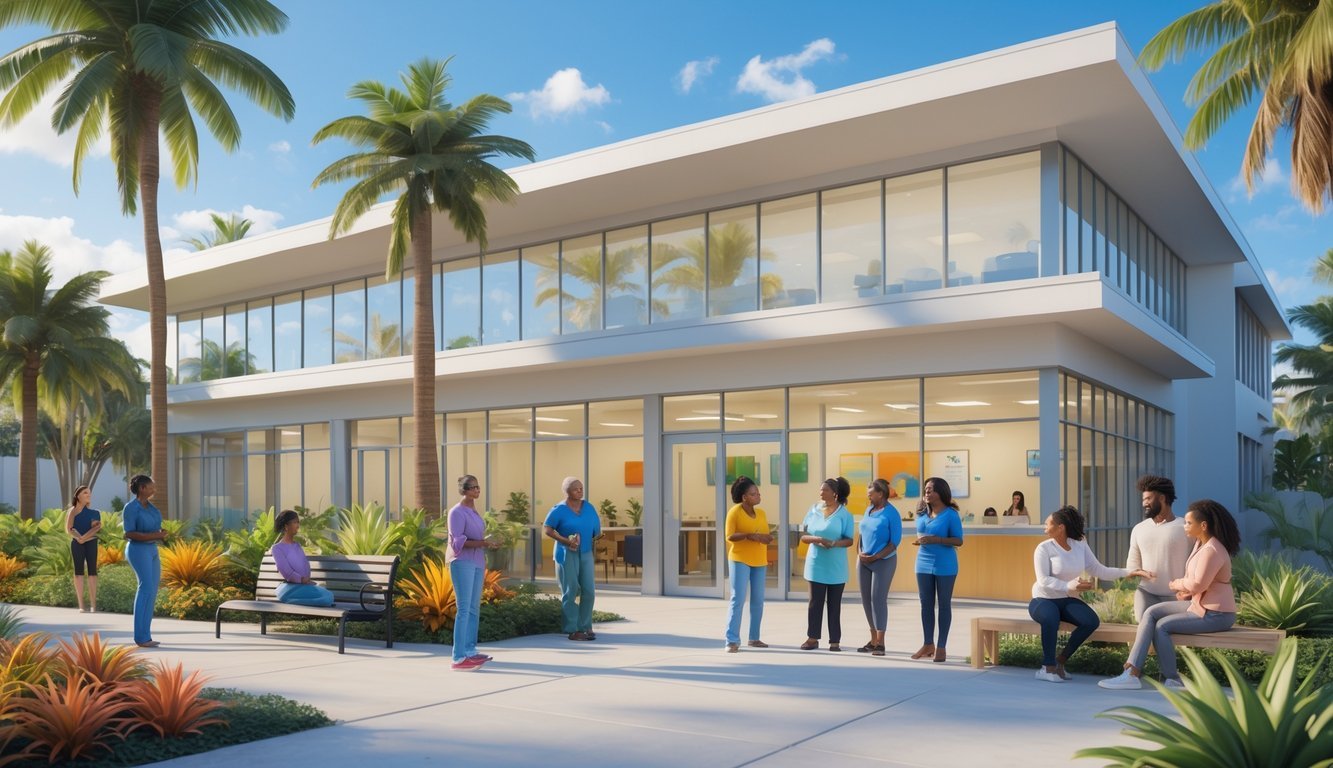
Mental health struggles touch millions of people in Florida, and treatment costs can stop folks from getting help. Florida has plenty of free mental health services through state programs, community health centers, crisis hotlines, and nonprofits. These groups offer counseling, therapy, and emergency support at no cost to residents.
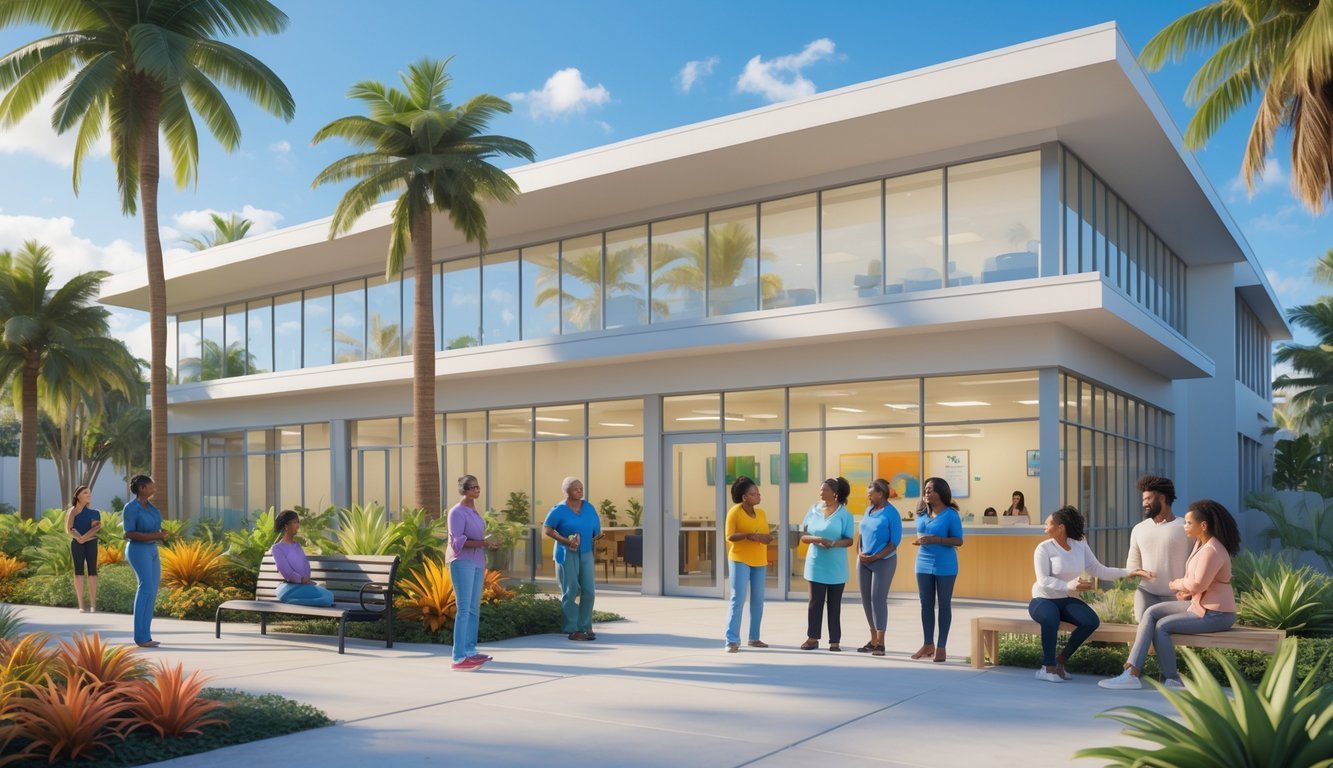
You can get these services whether you have insurance or not. Many programs run 24/7 and give you options for in-person or remote support.
Florida’s network covers everything from urgent crisis help to ongoing counseling.
Knowing where to look and how to reach out can make a huge difference. Instead of struggling alone, you could get professional support.
This guide breaks down the main programs, who qualifies, and what steps you need to take to connect with mental health professionals near you.
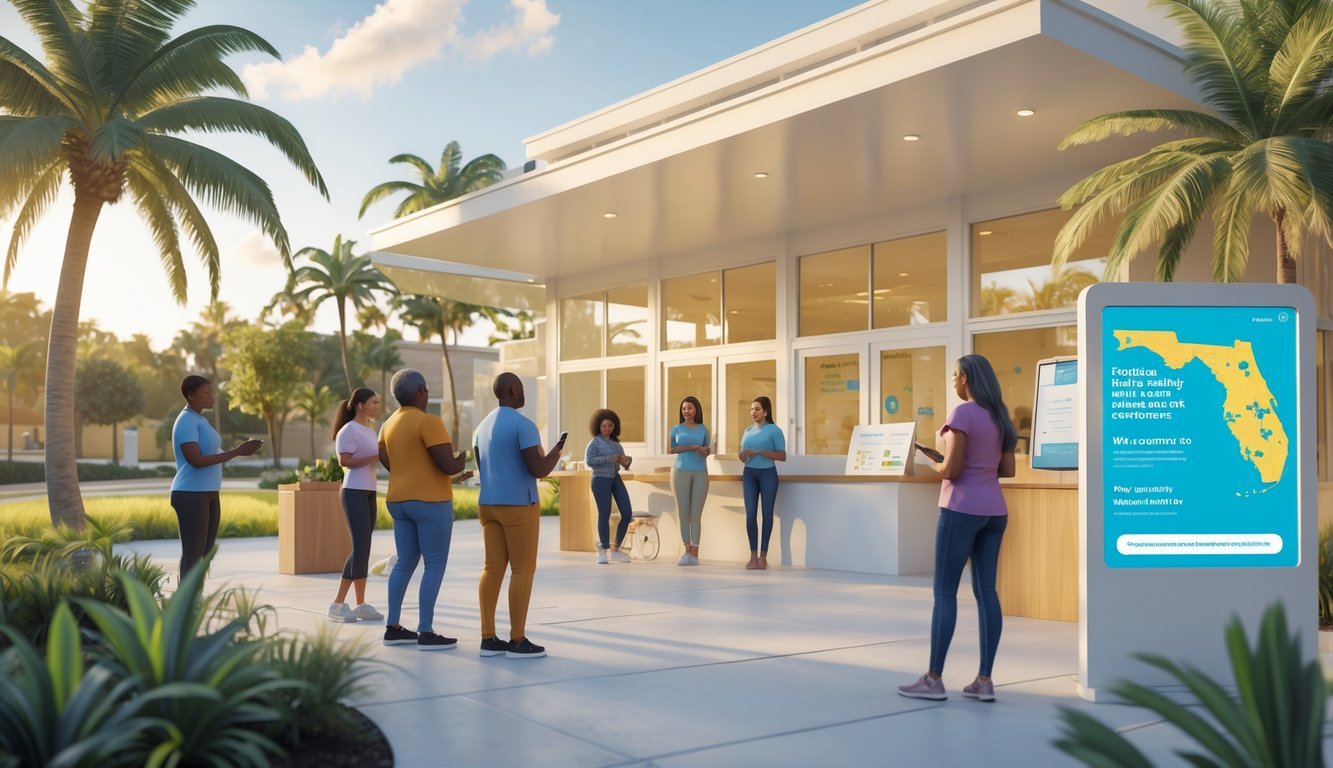
Finding free mental health care in Florida means knowing where to start and what to do next.
Most programs have income limits and ask you to apply, but lots of people qualify through state agencies, community centers, or nonprofits.
Your income decides if you can get free mental health services in Florida. Most programs use federal poverty guidelines.
Income Requirements:
The Florida Department of Children and Families runs many free programs. If you get food stamps, Medicaid, or disability, you might qualify.
Who Gets Priority:
Some programs don’t check your income at all. Crisis hotlines and emergency services help anyone who needs it right away.
Start by calling your local mental health center. Every county has at least one center that serves people without insurance.
Application Steps:
The Florida Department of Children and Families website has a provider search tool. Just type in your zip code to find centers nearby.
Required Documents:
Most centers can see you within two weeks. If you’re in crisis, you can get help the same day.
Free mental health services in Florida cover a lot of ground. Community mental health centers offer the widest range of help for people without insurance.
Counseling Services:
Medical Care:
Support Programs:
Some university health services also offer free or low-cost mental health care. Students can often use campus counseling centers.
Community health centers provide mental health care too. They serve people no matter their ability to pay.
Your first visit is usually an intake appointment. It lasts about 60 to 90 minutes and lets staff get to know your needs.
During Your First Visit:
You’ll talk about your family and work situation.
The counselor will ask about any medications you take.
Together, you’ll set goals for treatment.
The counselor will work with you to create a treatment plan. This plan lists the services you need and how often you’ll get them.
Follow-up Care:
Wait times change depending on where you go and what you need. Routine counseling might have a waitlist, but crisis help is always available fast.
Most centers try to keep you with the same counselor each time. This helps you build trust and get better results.
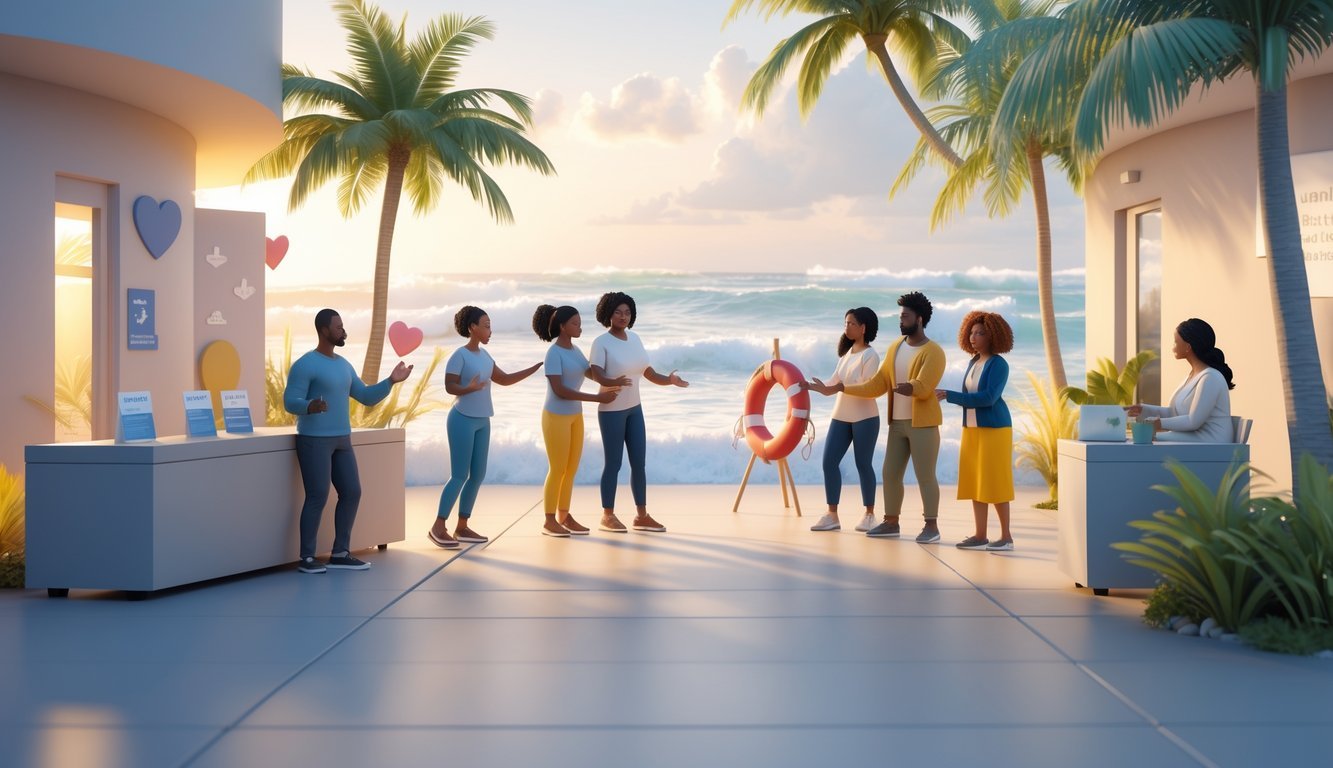
Florida has several crisis support services that step in right away when you need help. You can get free crisis intervention through national hotlines, local mobile teams, and special helplines across the state.
The 988 Suicide & Crisis Lifeline connects you with trained counselors 24/7. You can call, text, or chat online any time.
This service is free and confidential. Crisis counselors give immediate emotional support and help you make a safety plan.
How to access 988:
The lifeline has special support for Spanish speakers and LGBTQ+ folks. You don’t have to be thinking about suicide to call. The service helps with any mental health crisis.
Mobile crisis teams come to you during mental health emergencies. These teams include psychiatrists, social workers, and mental health pros.
Mobile crisis services provide psychiatric emergency care in places like your home or workplace. The teams show up fast to calm things down and help you stay safe.
Services provided:
Many Florida counties have mobile crisis teams available at all hours. You can call your local mental health authority or dial 988 for mobile crisis help.
Crisis intervention services give immediate support during tough mental health moments. These programs help you handle big emotions and dangerous thoughts safely.
Crisis centers provide trauma counseling and certified rape crisis support in lots of Florida communities.
Walk-in crisis clinics offer same-day psychiatric care, no appointment needed.
Types of crisis intervention:
Crisis intervention services will connect you to long-term treatment. Many programs take Medicaid or offer sliding-scale fees.
Florida has a bunch of specialized hotlines for different mental health crises. These free phone lines give immediate emotional support and local referrals.
The Crisis Center of Tampa Bay runs 211, connecting you to over 3,000 community resources. All calls stay confidential.
Key Florida helplines:
These helplines handle issues like depression, anxiety, relationship struggles, and money stress. Many offer text and online chat too.
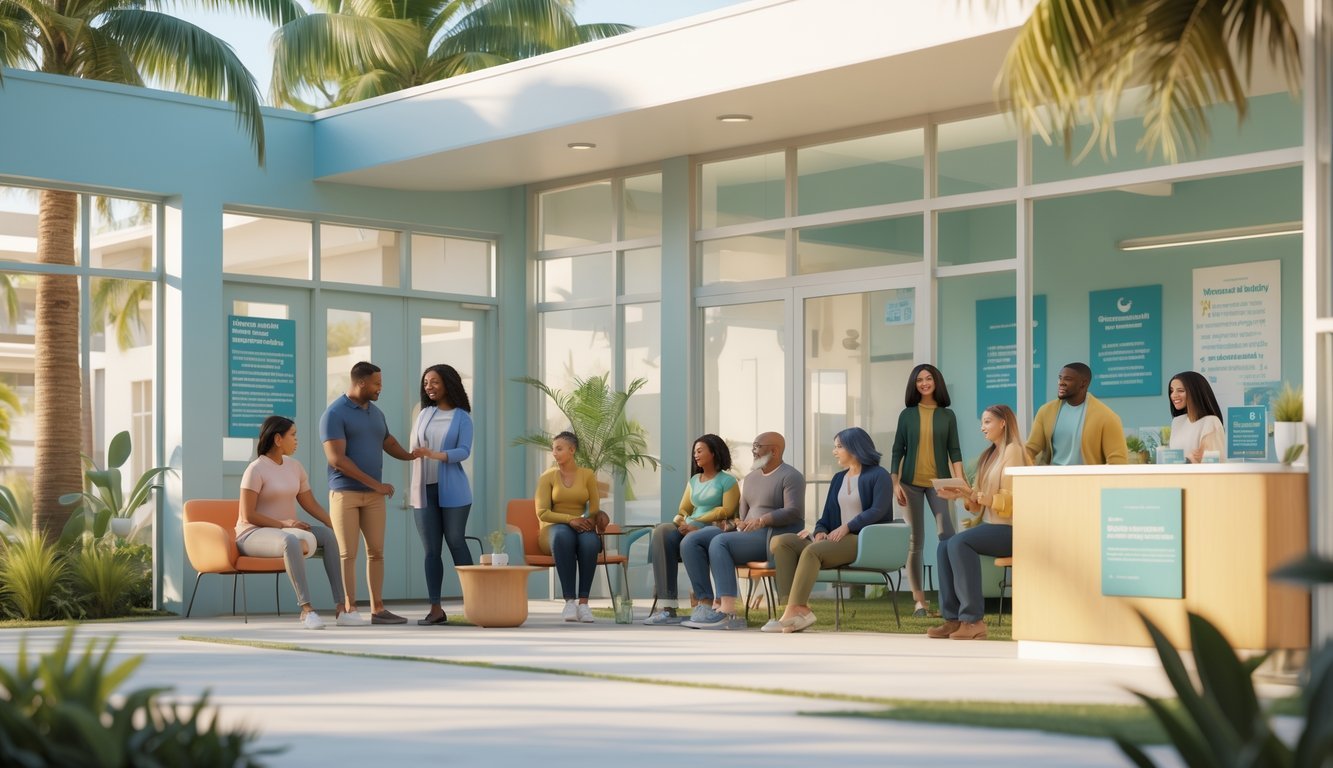
Florida has a lot of community programs through local mental health centers, substance abuse treatment facilities, and behavioral health networks. These programs aim to make care easy to get across the state.
Community mental health centers form the backbone of Florida’s public mental health system. These centers provide counseling, group therapy, psychiatric evaluations, and medication management.
The Department of Children and Families oversees most of these places. They serve you no matter your ability to pay, and most use a sliding fee scale.
You’ll find centers in every Florida county.
Services usually include:
Many centers also have special programs for trauma, depression, or anxiety. Community mental health services focus on targeted populations with treatment built for their needs.
Florida funds lots of substance abuse programs through community partnerships and state support. These programs help people with alcohol and drug addiction using different treatment styles.
You can get inpatient or outpatient substance abuse services. Many programs mix mental health treatment with addiction counseling, since those problems often show up together.
Available services include:
The state pays for many programs for low-income residents. Mental health referrals often include substance abuse screening, since it’s common to have both.
Florida’s behavioral health networks combine mental health and substance abuse services under one system. These networks coordinate care between different providers.
Each network covers a certain part of the state. They contract with local providers to deliver a full range of behavioral health services.
This helps you get coordinated treatment across different types of care.
Networks usually manage:
Social services often connect through these networks to help with housing, jobs, and other needs that affect your recovery.
Florida has targeted mental health programs for groups like children, veterans, and older adults. Peer support groups also give community-based help across the state.
Florida runs special mental health services for kids and teens. These programs focus on early help and family-centered care.
KidCare Program covers mental health services for kids up to 19. The program offers counseling, therapy, and psychiatric care at lower costs.
School-Based Mental Health Services are in many Florida school districts. These programs put counselors and therapists right in schools.
Kids in foster care get priority for mental health services. The Department of Children and Families coordinates these programs.
Crisis Services for Youth include 24-hour hotlines and mobile response teams. They help families handle mental health emergencies.
Community mental health centers have special programs for:
Veterans can get mental health services through both state and federal programs in Florida. The Florida Department of Veterans Affairs runs clinics across the state.
VA Medical Centers in Miami, Tampa, Gainesville, and West Palm Beach offer mental health care like PTSD treatment, depression counseling, and substance abuse programs.
Vet Centers give readjustment counseling for combat veterans. They focus on helping veterans move back into civilian life.
Older adults can access mental health care through Area Agencies on Aging. These agencies coordinate services across all 67 Florida counties.
Adult Protective Services help older adults facing abuse or neglect that affects their mental health. Social workers provide crisis help and ongoing support.
Medicare covers mental health services for seniors. Many community health centers offer sliding-scale fees for extra services.
Peer support groups bring together people across Florida who’ve faced similar mental health challenges. You’ll find these groups meeting at community centers, churches, and health clinics.
NAMI Florida (National Alliance on Mental Illness) organizes groups in most counties. They offer family support and peer-to-peer meetings.
Depression and Bipolar Support Alliance chapters host gatherings all over the state. People get education and share support with each other.
Alcoholics Anonymous and Narcotics Anonymous help folks working through addiction and mental health recovery. You can usually find a meeting any day of the week in most cities.
Hospitals and community mental health centers often set up groups focused on specific issues:
More people have started using online support groups in the past few years. Now, plenty of Florida organizations offer both virtual and in-person meetings.